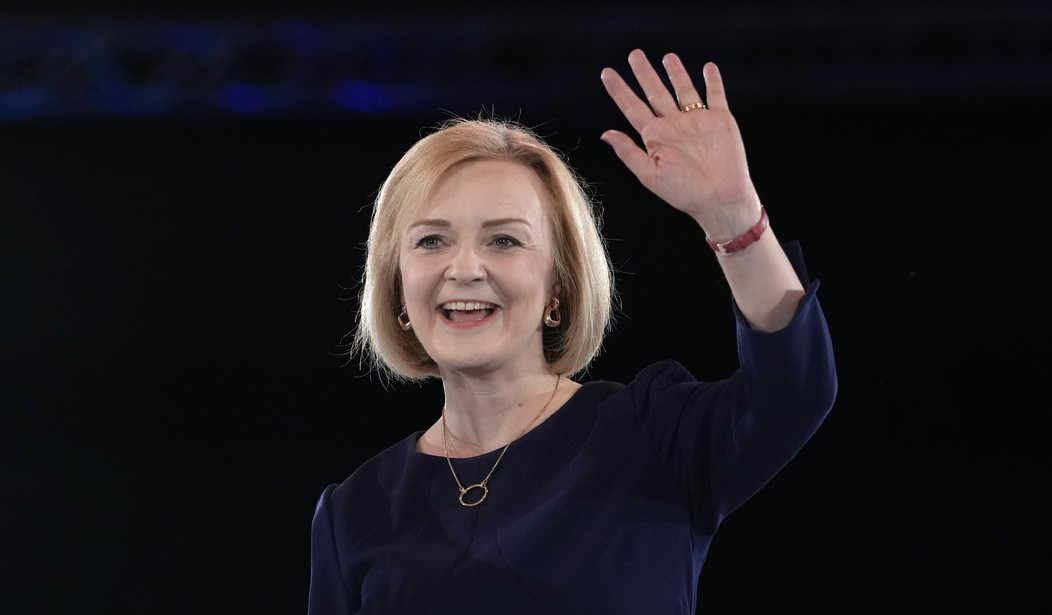The news of the death of Queen Elizabeth II and the round-the-clock coverage of her upcoming funeral has almost made us forget that the UK also has a new prime minister. Liz Truss won the heated contest to replace Boris Johnson as the leader of the Conservative (Tory) Party and thus moved into 10 Downing Street as prime minister.
On Truss’ third day in office, her monarch died, which put politics on the back burner, but she kicked off the Liz Truss era in a head-turning way. She began leading the Tories and governing her nation as an actual conservative.
Tom Harris, a former Labour member of Parliament, writes at the Telegraph about what we’ve seen of Truss so far as prime minister.
“At least for now, she seems to have brought a clear philosophy back to government, a philosophy that, however opposed it might be in some quarters, is at least recognisable,” Harris writes. “It differs from the politics of the previous regime in that it is distinctly Conservative: small state, low tax, less nanny statism.”
It’s a far cry from the last several Tory prime ministers who talked a conservative talk but have often avoided walking a conservative walk.
Harris cites the move by Truss’ pick for Chancellor of the Exchequer, Kwasi Karteng, to buck the European trend of capping the bonuses that bankers can earn as a bold move. He writes that “the motivation and long-termism embraced by Kwasi Kwarteng is at least clear and sound. In a post-Brexit world, there is much to be gained in making London the world’s most attractive capital in which to conduct financial business.”
Another positive step for the Truss government is backing off from the “war on obesity” that brought nanny-state intervention to the kitchen and the restaurant table. Harris points out:
Personally, I have no objection to having calorie counts on restaurant menus, provided I’m still allowed to order whatever I want. But there may be some political gains ahead for a party that maintains the truth that we are each of us responsible for our own diet and our own size; much as I’d like to blame the government (the Scottish one, preferably) for my own weight, I must accept that no one forces me to eat pizza or Mars Bars; those are my choices, made by an adult with the full knowledge of the consequences. To assume that other, mostly poorer citizens have no such agency strikes me as unforgivably patronising.
To these bold, conservative moves, I would add Truss’ removal of the UK’s ban on fracking in the North Sea, a move that could do much to lower energy prices for the British public.
Recommended: FLASHBACK: The Godfather of Soul, a Future King, and a College Football Blowout
“The lifting of the moratorium on so-called fracking was part of a package of measures announced on Thursday [Sept. 8, the same day Queen Elizabeth passed away] to tackle soaring energy prices that are hammering households and businesses, reported Bloomberg last week. “Even with the renewed government support, the shale gas industry still faces an uncertain road, with significant opposition from local communities and challenges related to the country’s geology.”
Naturally, as a Labour politician, Harris views the beginnings of Truss’ prime ministership through an opposition lens. He muses that Labour needs to present a message that’s more than just “not the Tories” — much like Joe Biden and the 2020 crop of Democrats campaigned largely on “not Trump.”
“The bottom line is that Labour needs now to start forming a platform for government, not just for opposition,” he concludes. And he’s right. Labour has a polling lead right now, but if Truss keeps governing in a way that benefits everyday Britons, that lead could evaporate.
Here’s hoping Truss can give the Tories a bigger foothold among the electorate.










Join the conversation as a VIP Member